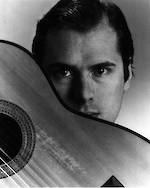What the press should care about
What kind of music writing and music criticism gives lustre to a periodical? It changed overt time. When I was young there was still Cold War cultural upward mobility--what Wuorinen defends as "high culture". The Wuorinen interviews on Charlie Rose din't convince me. There is something behind what Wuorinen does that's vauable and high, I could try; I will try to lay it down in writing, but he never put his finger on it in those interviews. Milton Babbitt told me, "If you are interested in normative questions, I can address those."
This very moment is interesting. High culture is back and it can likely be traced to decisions made here and there to take a gamble on a force that seems unstoppable -- Euromoderns with endless government support. I was not influenced by Wuorinen & other American modernists who had nothing good to say about the Euromodernists. I was with them. There is a crop of composers that have emerged as eminent figures that do not address, let alone answer any of the musical questions, do not set into motion any of the the harmonic frissons that make me live and breathe and make me happy. Wuorinen's bile came from that. We were on the same page. I lived longer than Wuorinen, and now I can aver that somehow, surprisingly, almost out of nothing, sharing no values whatsoever with music I love and the neurons that mirror those structures, some things coming from Europe touch a nerve. The question that remains to be answered is how to spin such out in time through a work. No less than the minimalists, the Euromoderns are starting from scratch. A terrible, imposing intimidating ediface is removed, allowing young people and young people who grew old to get that off their backs and create. That's terrific.
I've researched the normative questions and Terry Eagleton's Introduction to Literary Theory was the most valuable guide, I felt, to the fuitilities of seeking definitive answers. Jameson's perspective is tainted by group think. Someone infected him with the notion that it's ok to defenestrate Schoenberg.
Putting aside for the moment the increasing profile of European high culture in the US, what's replaced that vague notion of high culture?
--Jumping on the coattails of unstoppable young talents. I did my share of that, and some of the talents I still deem worthy even after the youth and unstoppability have passed. Unstoppable young composers: Peter Pindar Stearns, Brian Fennelly. I love their work. They won all the prizes. Have you heard of them?
--Going for the best production values. This includes assembling formidable teams that someone like Susan Sontag would take seriously. Sontag wrote lovingly about Lucinda Childs, who had interesting and powerful collaborators.
--Social construction is now the norm. It's woefully tautological. What people listen to is what's worth discussing. This norm happens to work in beautiful harmony with the deporable state of affairs in the US where the prospects for a success hinges on the sight, visible a short way down the road, of a business plan.
I am not interested in a critic, regardless of how powerful and lustrous their vehicle is, who fails to seek excellence in the cracks between business plans. And plenty of critics try their best, as I do. I don't need to see puff pieces about the done deals. We are interested in the done deals, but please let's not stop there.
An example of a composer who lives in the cracks between business plans is David Loeb. He has an international career, primarily through his amazing way of interesecting with early music (he's active in the Netherlands) and with traditional instruments, primarily Japanese classical instruments (He's active in Japan). Classical guitarists who interesect with early music and world music, have been fascinated by his work for decades, especially in New York. I've realizerd that he has written a great number of works that I love. He writes fast, and is happy to create on any deadline for any instrumentation. That should not let anyone take him less seriously.
An example of his work with traditional Japanese instruments --
Fantasie on a Rondeau of Dufay
Marian Aguirre, Carlo Valte, and Scott Jackson Wiley perform Loeb's
"Between Sea and Sky"
for The Village Trip
on Sept 16, 8PM
https://www.thevillagetrip.com/event/guitarfest-3/

